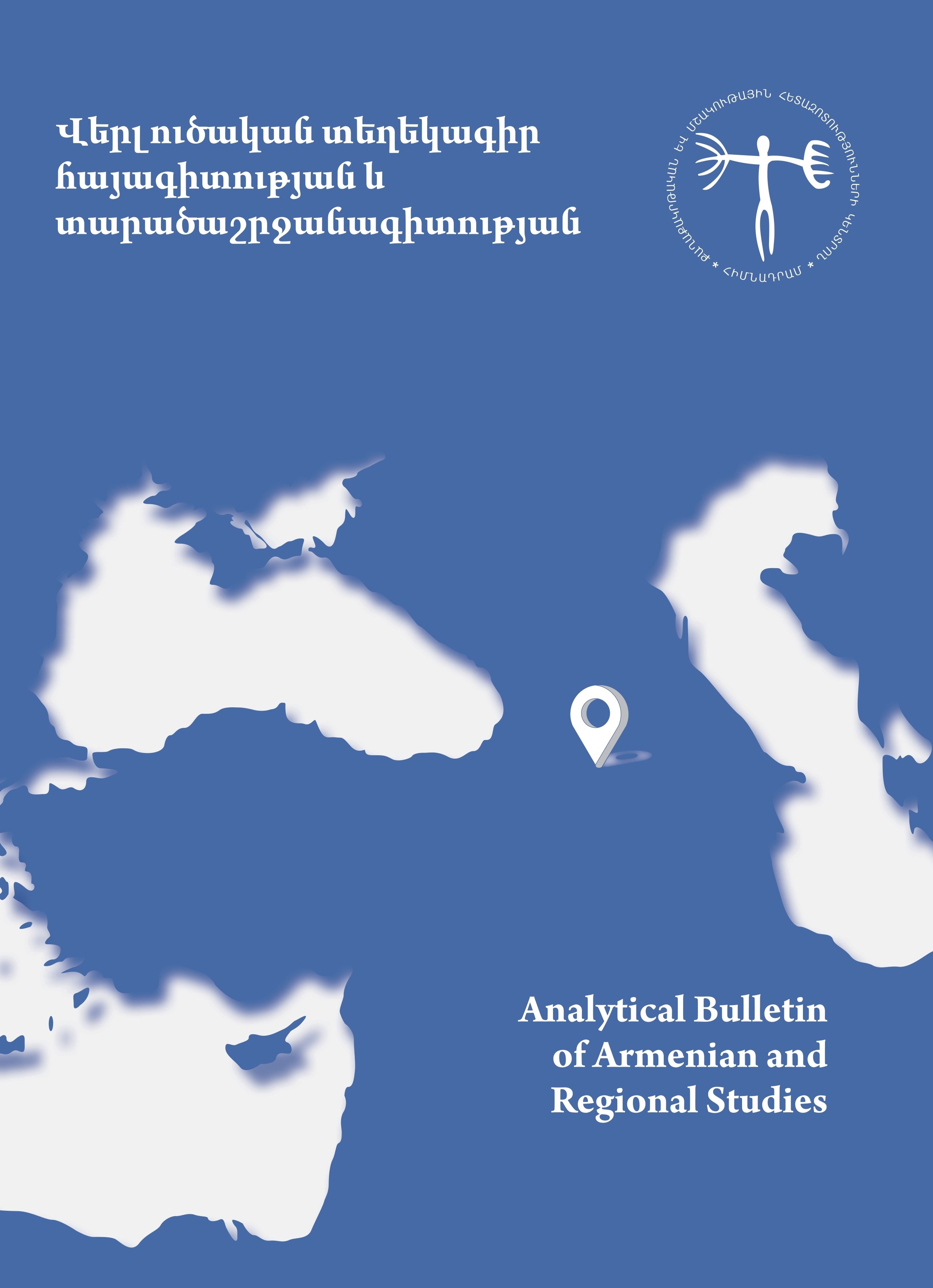The Nagorno-Karabakh Conflict and Iran’s Regional Policy
##semicolon##
https://doi.org/10.56673/18294502-22.14-73##article.abstract##
For Iran, the Nagorno-Karabakh conflict and its peaceful settlement were and remain closely related to national security interests. The basis of Iran's national security is anchored in the protection of all the layers of Iranian identity. Taking into consideration that this identity consists of Iranian, Islamic, Shiite and Revolutionary elements, we can argue that the attempt to impose a military solution to the Nagorno-Karabakh conflict and, particularly, the direct involvement of Turkey and foreign mercenaries in the conflict, has been and still remains a threat to all components of Iran’s security.
The status quo of the Nagorno-Karabakh conflict has effectively hindered the implementation of the Azerbaijan-Northern Iran-Turkey pan-Turkic program. Moreover, the neutralization of this obstacle has been one of the important components of the security of Iran's identity. Azerbaijan, with the support of Turkey, is consistently trying to advance the idea of “one nation, two states”, presenting the northern provinces of Iran as “Southern Azerbaijan” and talking about the need to unite them with the Republic of Azerbaijan. In the context of this ideology and the struggle of the Pan-Iranian ideology against it, preventing the expansion of Azerbaijani forces toward the east and southeast was within Iran’s immediate interests. It is not surprising that in the aftermath of the 44-Day War in Karabakh, Iran has implemented several military drills across the Iran-Azerbaijan borders. The latest one is the largest and it has been accompanied by several anti-Azerbaijani statements from Iranian officials.
In addition, Iranian officials have repeatedly stated that the territorial integrity of the Republic of Armenia is a red line for Iran and the North-South Corridor is of vital importance for Tehran.
From the perspective of Iran’s Islamic identity, the current Azerbaijani state, with its secular approaches and pro-American, pro-Israeli policies, is considered a threat in the context of regional countries which are founded on Islamic values. Many Iranian experts and state officials believe that the Israeli technologies and human resources which have been used by Azerbaijan can also be used against Iran.
From the perspective of Shiite identity, although Azerbaijan is a country with a Shiite majority population, the facts surrounding repressions in cities with a significant religious population make Azerbaijan an enemy of Shiite identity. The policy adopted by Azerbaijan around religious organizations inspires Iran to raise legitimate questions about the sincerity of Azerbaijan’s Shiite identity. During and after last year’s war, the transfer of Sunni mercenaries to Azerbaijan has also had a major impact on the security of Northern Iran. It is crucial to remember that Iran has made it a national security priority to fight against Sunni extremist groups in Syria, Iraq, Libya and other parts of the region, asserting that if they are not eliminated outside of Iran’s borders, they will end up in the country proper. During the war, Iran’s officials repeatedly stressed the importance of the withdrawal of those mercenaries from the region. The presence of the mercenaries in the region was condemned not only by the representatives of the Ministry of Foreign Affairs of Iran and by the Majles but also in a statement made by Iran’s leader, Ayatollah Ali Khamenei, on 3 November 2020.
From the perspective of Iran’s revolutionary identity, the existence of Azerbaijan’s clan-based state authorities and the reliance of Azerbaijani politics on foreign economic and political actors in a polarized society make Azerbaijan an obstacle for the dissemination of Iran’s revolutionary values.
Thus, we can state that while Iran’s response to the escalation of the conflict in Nagorno-Karabakh was neutral and balanced, as it has been traditionally, Iran still has strong concerns about Azerbaijan’s behavior and desire for a military solution, Turkey’s involvement and the arrival of mercenaries in the region. Furthermore, Tehran’s statements about the sovereign territories of Armenia being its red line, especially when it comes to the southern Syunik region after the trilateral agreement of 9 November, make Iran’s security in the northern regions very vulnerable. This is the reason why Iran has been proactive with regards to its statements about regional stability and peace while also initiating a series of visits to both Azerbaijan and Armenia to boost all the possible regional projects, especially concerning the North-South Corridor.
##submission.downloads##
##submissions.published##
##submission.howToCite##
##issue.issue##
##section.section##
##submission.license##
##submission.copyrightStatement##
##submission.license.cc.by-nc4.footer##








